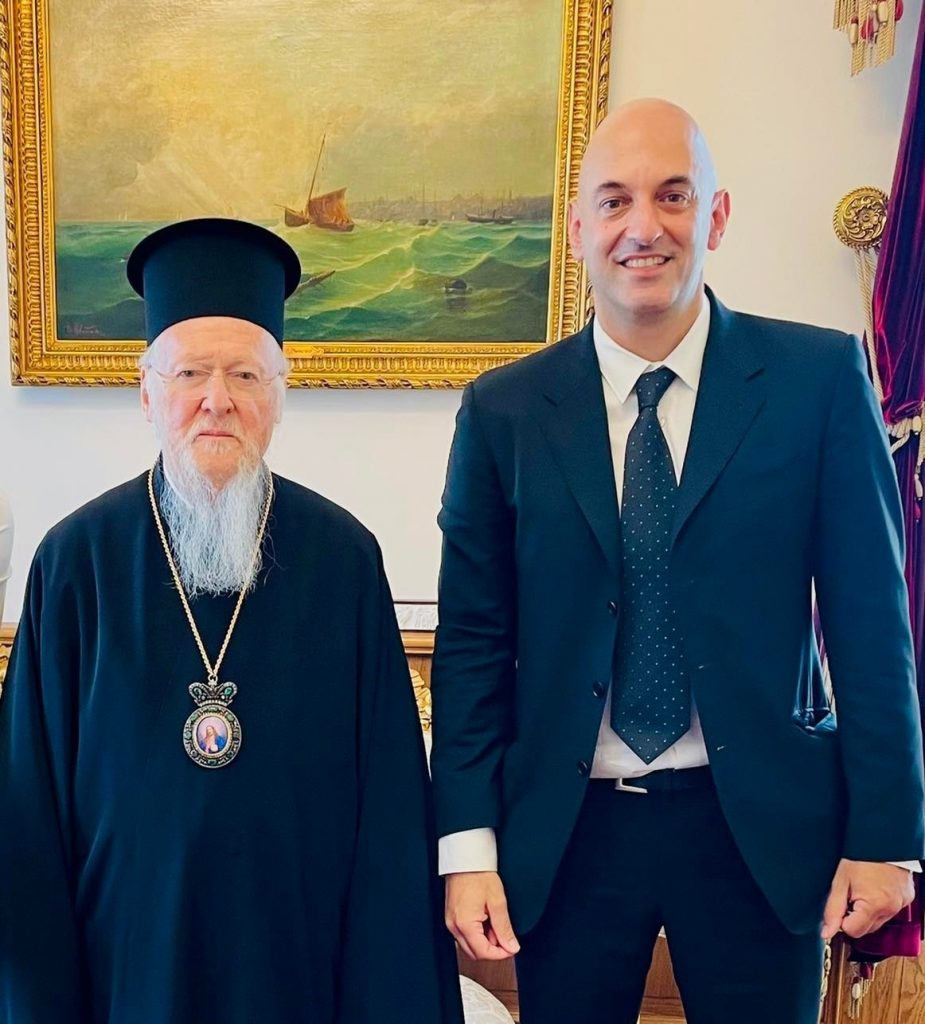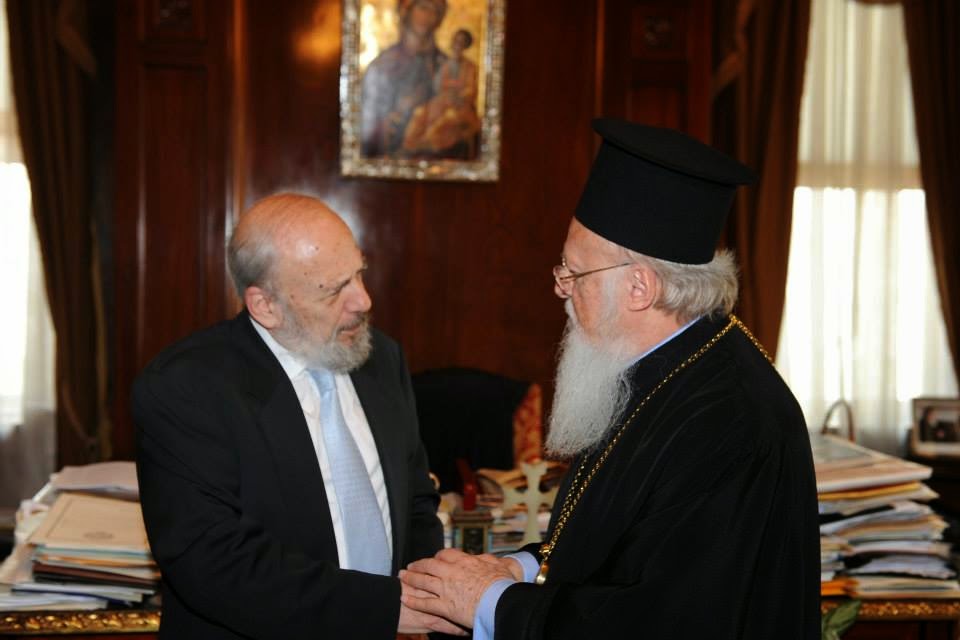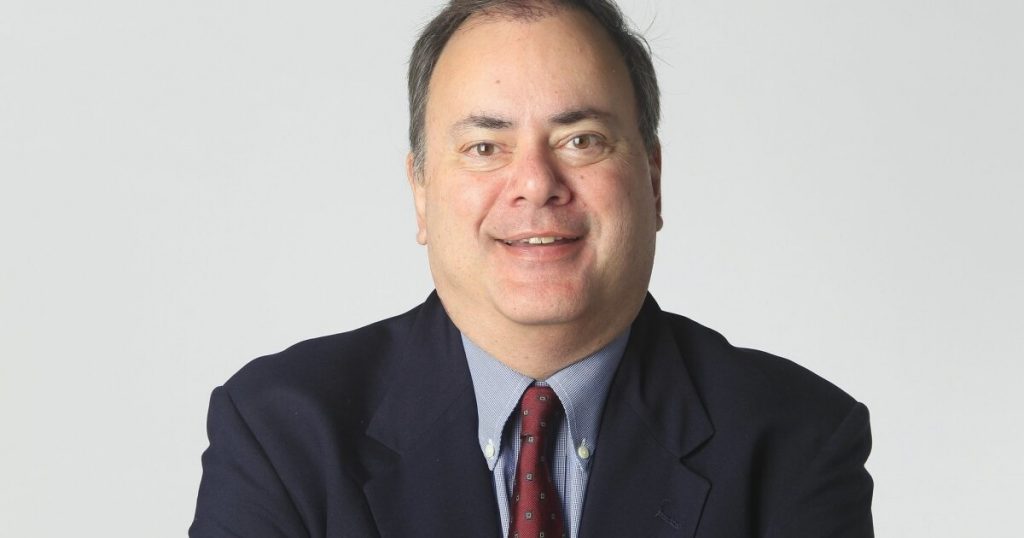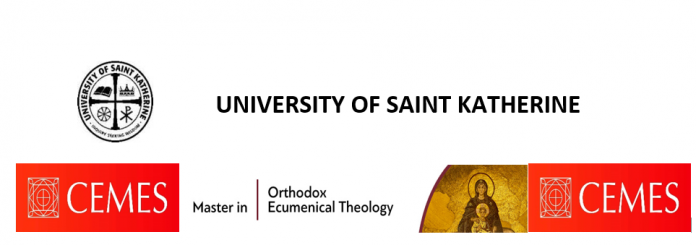Του Παναγιώτη Αντ. Ανδριόπουλου
Ένα καινούργιο, πρωτοποριακό πρόγραμμα εγκαινιάζει από την ερχόμενη ακαδημαϊκή χρονιά το Κέντρο Οικουμενικών, Ιεραποστολικών και Περιβαλλοντικών Μελετών «Μητροπολίτης Παντελεήμων Παπαγεωργίου» (CEMES). Πρόκειται για το εξ αποστάσεως αγγλόφωνο Μεταπτυχιακό πρόγραμμα με τίτλο «Orthodox Ecumenical Theology» (MOET) διορθοδόξου και οικουμενικού προσανατολισμού.
Απευθυνθήκαμε στους συντελεστές αυτού του προγράμματος, το οποίο παρουσιάζει ξεχωριστή σημασία για την ενότητα της Ορθοδοξίας, ιδιαίτερα τις δύσκολες στιγμές που την περίοδο αυτή διανύει, λόγω του πολέμου στην Ουκρανία και των οδυνηρών συνεπειών του.
Έτσι, ομιλούν στο Φως Φαναρίου: ο Πρόεδρος του CEMES, καθ. κ. Νικόλαος Δημητριάδης, ο Διευθυντής του MOET και Πρόεδρος επί τιμή του CEMES, Oμότιμος Καθηγητής του Α.Π.Θ. Πέτρος Βασιλειάδης, και ο ελληνοαμερικανός ιδρυτής και Πρόεδρος του Πανεπιστημίου της Αγίας Αικατερίνης (USK), Dr. Frank Papatheophanis.
Η συνέντευξη πραγματοποιήθηκε στα αγγλικά.
Υπενθυμίζουμε ότι το Κέντρο Οικουμενικών, Ιεραποστολικών και Περιβαλλοντικών Μελετών «Μητροπολίτης Παντελεήμων Παπαγεωργίου» (CEMES), ιδρύθηκε το 2011 και έχει ως στόχο την προώθηση, με την ανωτάτου επιπέδου διδασκαλία, και τη θεολογική τεκμηρίωση με την αντικειμενική επιστημονική έρευνα, κάθε μορφής οικουμενικού και διαθρησκειακού διαλόγου της κατά Ανατολάς Ορθοδόξου Εκκλησίας, όπως επίσης και του αυθεντικού Ορθοδόξου Ιεραποστολικού ιδεώδους.
Το CEMES έχει πραγματοποιήσει πολλές και σημαντικές δράσεις όλα αυτά τα χρόνια, σε διεθνές επίπεδο, καθώς και εξαιρετικές εκδόσεις, που αποτελούν σημείο αναφοράς στην ακαδημαϊκή Θεολογία.
PA: Dr. Dimitriadis, How the idea of an Orthodox Ecumenical Center started?

In 2008, Prof. Vassiliadis resigned from the Presidency of WOCATI, after a term of about 20 years, and devoted himself to the establishment and staffing of an ecumenical organization, following H.A.H. Ecumenical Patriarch’s wish to have also in the Orthodox world an ecumenical center. Two years ago, in 2006, together with other Thessalonian academics they organized in Edessa a scientific conference in honour and memory of the late Metropolitan of Thessaloniki (from the metropolis of Edessa and Pella) Panteleimon Papageorgiou. In 2011, CEMES was established, and during the visit to Phanar to present to the Patriarch the proceedings of the Edessa conference, he announced his wish to inaugurate CEMES’s offices during his scheduled 2013 visit to Thessaloniki, securing in addition its permanent stay within the premises of the Holy Monastery of Agia Theodora.
PA: Prof. Vassiliadis, can you tell us how the idea of an ecumenical master program started?
The World Conference of Association of Theological Institutions (WOCATI), during my presidency, decided in 2008 to create an international ecumenical master’s program. In 2015, I presented this idea to the International Hellenic University (IHU). Previously, the President of IHU, Prof. K. Grammenos, an Archon of the Ecumenical Patriarchate, had informed the Patriarch himself about a similar attempt by Russians to infiltrate the IHU, which he eventually prevented. Then, the Patriarch suggested to him that he contact me as the President of CEMES, explaining in brief the importance of such a development in Orthodox higher theological education.
From 2016 to 2018, Prof. Grammenos assured me that, despite reactions inside IHU, he will succeed in establishing the Master Program in “Orthodox Ecumenical, Theology” (MOET) I recommended, and requested his secretary, Mr. I. Konstas, to assist me. From him have I learned about the internal IHU reactions. Despite this, the official gazette of the Greek Ministry of National Education and Religions (FEK) for the establishment of MOET was issued in 2018 Prof. Grammenos had also approved its promotion fund with my visits to various Orthodox Churches and to the Minister of National Education. In 2018, however, after the festal events for the 10 years of operation of the IHU and the merger of the 9 Technological Institutes into it, Prof. Grammenos, (who actually invented the idea and set it up as the first English-speaking institution of Higher Education) submitted his resignation but assured me that he has left an order to Mr. Konstas to help me, and I should not worry about its future.
Early in 2019 Mr. Konstas was also removed from IHU by the new administration, and the documents of my travels to promote MOET disappeared. Since then, MOET’s legal activation has been postponed from semester to semester. As a result, many students were forced to submit to other institutions their application, something which discredited the program as unreliable. The last difficulty was the relegation of the postgraduate department of IHU into a Center for External Studies, actually a non-independent unit, which forced me to turn to the Pontifical University of St. Thomas (Angelicum) for cooperation to enable MOET legally function. The immediate response of Cardinal Kurt Koch, head of the Angelicum, was more than encouraging.
PA: Prof. Vassiliadis, can you tell us something more about this ecumenical master program and explain the necessity of yet another master program, in view that all Orthodox Churches have similar post-graduate programs?

The Master Program in Orthodox Ecumenical Theology (MOET) is an inter-Orthodox and inter-jurisdictional program, which aims at applying the invaluable theological legacy of the Orthodox Christianity to the needs of the present, following all international standards of excellence and the critical study pursued in modern academic scholarship, also in view of Geopolitics.
Its necessity became manifest after the recent developments in world Orthodoxy, especially after the Russian invasion in Ukraine. All higher education institutions of our Orthodox Autocephalous Churches are scheduled to promote in one way or another the ecclesiastical policy of their local Church, and very seldom take care of promoting the unity of the One Church of Christ. MOET, in addition to taking provision to set up an inter-Orthodox academic committee, it also agreed to invite distinguished theologians from various Orthodox jurisdictions. It also initiated open public lectures every academic year, the last of which on “The Unity of the One Church of Christ” included lectures and comments by theologians from 15 countries and four continents, the proceedings of which are published by the Synaxis Press.
PA: Prof. Vassiliadis, what is its target audience?
The Master in Orthodox Ecumenical Theology is addressed to English-speaking theologians, and graduates of relevant disciplines, who wish to acquire or broaden their specialization through a high-level instruction aiming at an effective application of the foundational doctrine of Christianity, especially the Orthodox (Biblical, Liturgical, Patristic) to our secular, multi-religious and multi-cultural context. Eligible for registration are holders of any undergraduate bachelor’s degree from accredited higher education institutions.
The developments in IHU, and its alleged inability to run a theological master program, led CEMES to come in 2022 to an official agreement with an American institution of higher education for the academic accreditation of MOET, thanks to the kind invitation by the President and founder of the University of Saint Katherine, Dr. Frank Papatheophanis, with whom Prof. Dimitriadis started negotiations.
PA: Dr. Dimitriadis, what are its aims and objectives?
Its aims and objectives are:
-Το provide research and education in foundational Orthodox theology that meet the needs of the Church in the 21st century in local, geopolitical, inter-Christian, and inter-Faith environment. Though it was primarily planned to deal with Orthodox Theology in its ecumenical perspective – the term “ecumenical” referring to the universal, catholic and ecumenical dimension of the Christian faith – it also applies to all Christian theologies designated not in a confessional sense as “orthodox”.
– To enhance understanding of the ecumenical, socio-economic, ecological, geopolitical and gender issues facing the Churches and society today, through teaching and research of the highest academic standard.
– To create an international, multi-ethnic, multi-cultural and diverse student and faculty community to foster greater understanding between cultures, nations, and Church traditions.
PA: Dr. Papatheofanis, can you tell us something about the University of Saint
Katherine?

USK is the first Orthodox University in the United States and English-speaking world with a distinctive and transformative education vision. We are located in San Diego, California, “America’s Finest City”. Saint Katherine has joined historic universities such as John Erskine’s Columbia and Robert Hutchins’s University of Chicago that embraced a structured, coherent, transformative curriculum in which what comes before serves as ground for what comes after with the aim of graduating students who have absorbed a truly liberal education. Thus, it has quickly become a nationally recognized institution of higher education. It offers undergraduate and graduate degrees in over 25 different areas including arts and humanities, business management, kinesiology, natural sciences. It offers the Master Program in Theology via distance learning. It recently added an option in Ecumenical Orthodoxy through the CEMES/USK faculty.
PA: Dr. Papatheofanis, can you tell us something about yourself?
I am a physician-scientist and educator with over 30 years of leadership experience in academic medicine and science. My research career began in the Department of Neurology at the University of Chicago. I subsequently directed the Biomaterials and Bioengineering Laboratory in the Department of Orthopaedics and served as Assistant Research Professor at the University of Illinois where I earned a doctorate in biochemistry and a medical degree; I then completed postgraduate residency training and served as chief resident in the Department of Radiology at Loyola University Medical Center. I also completed advanced training in health policy and economics and earned the Master in Public Health (MPH) degree at Johns Hopkins. I subsequently completed graduate studies (MLitt Divinity) in theology at the University of St Andrews (Scotland). I founded and directed the Advanced Medical Technology Assessment and Policy Program at UCSD where I also directed the Science, Technology and Public Affairs Program, was an attending physician in radiology, and served on the faculty for over 15 years.
I serve as editor, editorial board member, and peer reviewer for many leading professional publications. I am the author or co-author of over 200 scientific and medical peer-reviewed publications, chapters, and books; Ι am emeritus editor-in-chief of the peer-reviewed journal, Risk Management and Health Policy. My research currently focuses on interdisciplinary learning and Christian higher education. I have served on the Theological Education Committee of the Assembly of Canonical Orthodox Bishops of North and Central America.
My wife Dr. Julie Papatheofanis and I have three children and reside in San Diego. Dr. Julie Papatheofanis is a practicing physician who served on the founding Board of Trustees of FOCUS NA and actively serves on the Board of Trustees of Project Mexico and St Innocent Orphanage. They founded the Wheaton Center for Early Christian Studies at Wheaton College (IL). Dr. Julie Papatheofanis currently serves on the Wheaton College Board of Visitors.

